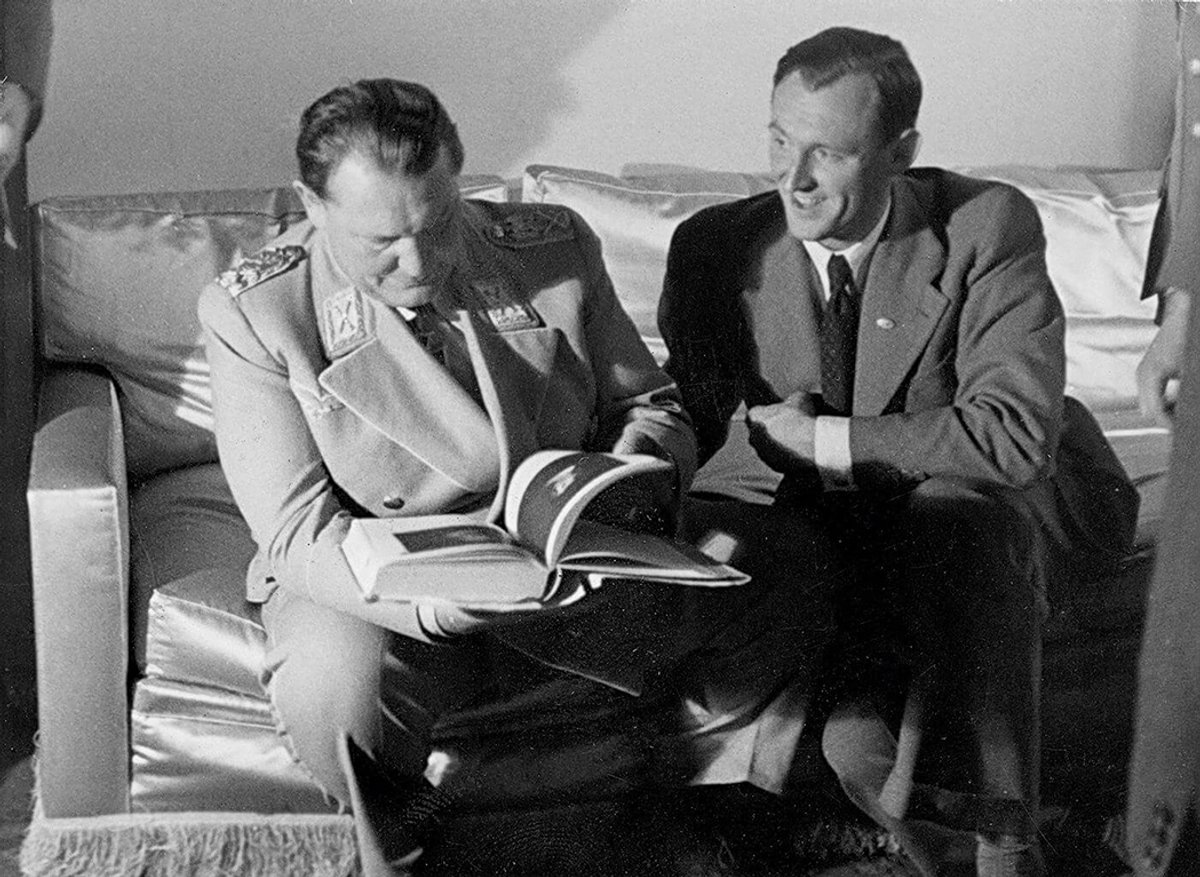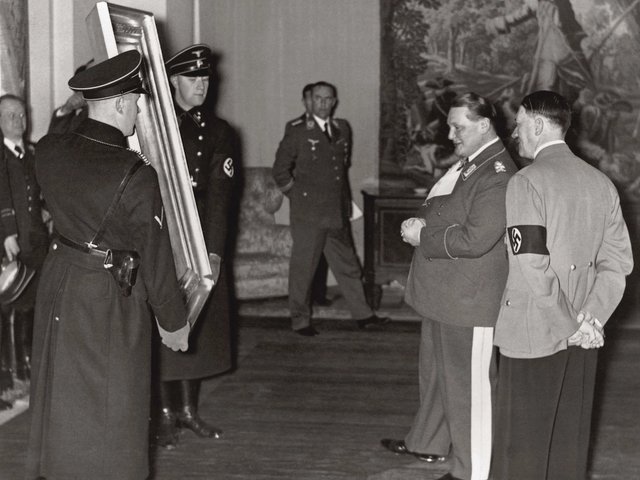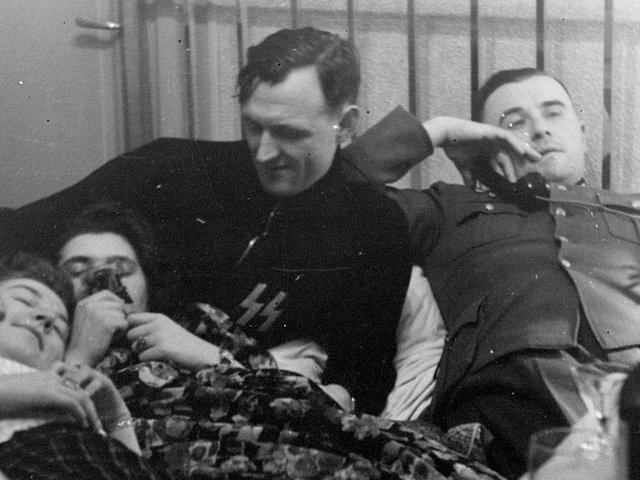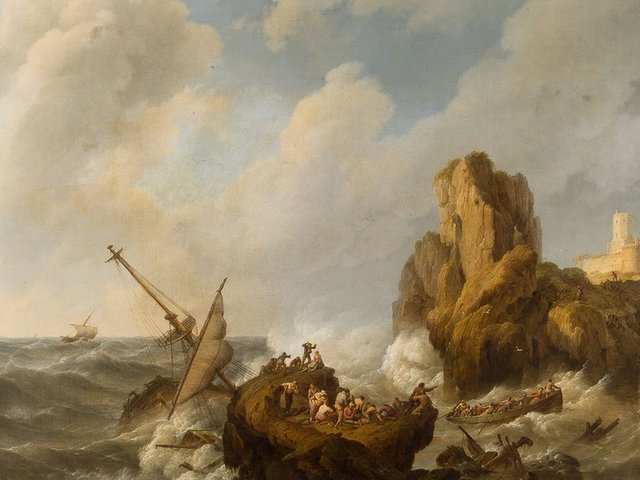Two engrossing new documentaries at present making the film-festival circuit investigate Nazi art looting and its repercussions today. The Spoils (2024) focuses on a victim: the Jewish dealer Max Stern, who was forced to close his gallery, auction his stock and flee Germany. The two-part Plunderer: The Life and Times of a Nazi Art Thief (2024) explores the career of one of the most infamous perpetrators, Bruno Lohse, an SS officer who seized Jewish collections and helped Reichsmarschall Hermann Göring to amass a vast store of looted art.
A central figure in the Nazi art-looting operation in occupied France, Lohse quickly advanced to become the Paris agent for Göring, Adolf Hitler’s number two. He ordered and took part in raids and oversaw activities at the Jeu de Paume, where the Nazis stored art looted from Jewish families. Göring was a frequent visitor and Lohse would show him paintings; after the Reichsmarschall had made his choices, the works were transported by private train to his country estate near Berlin.
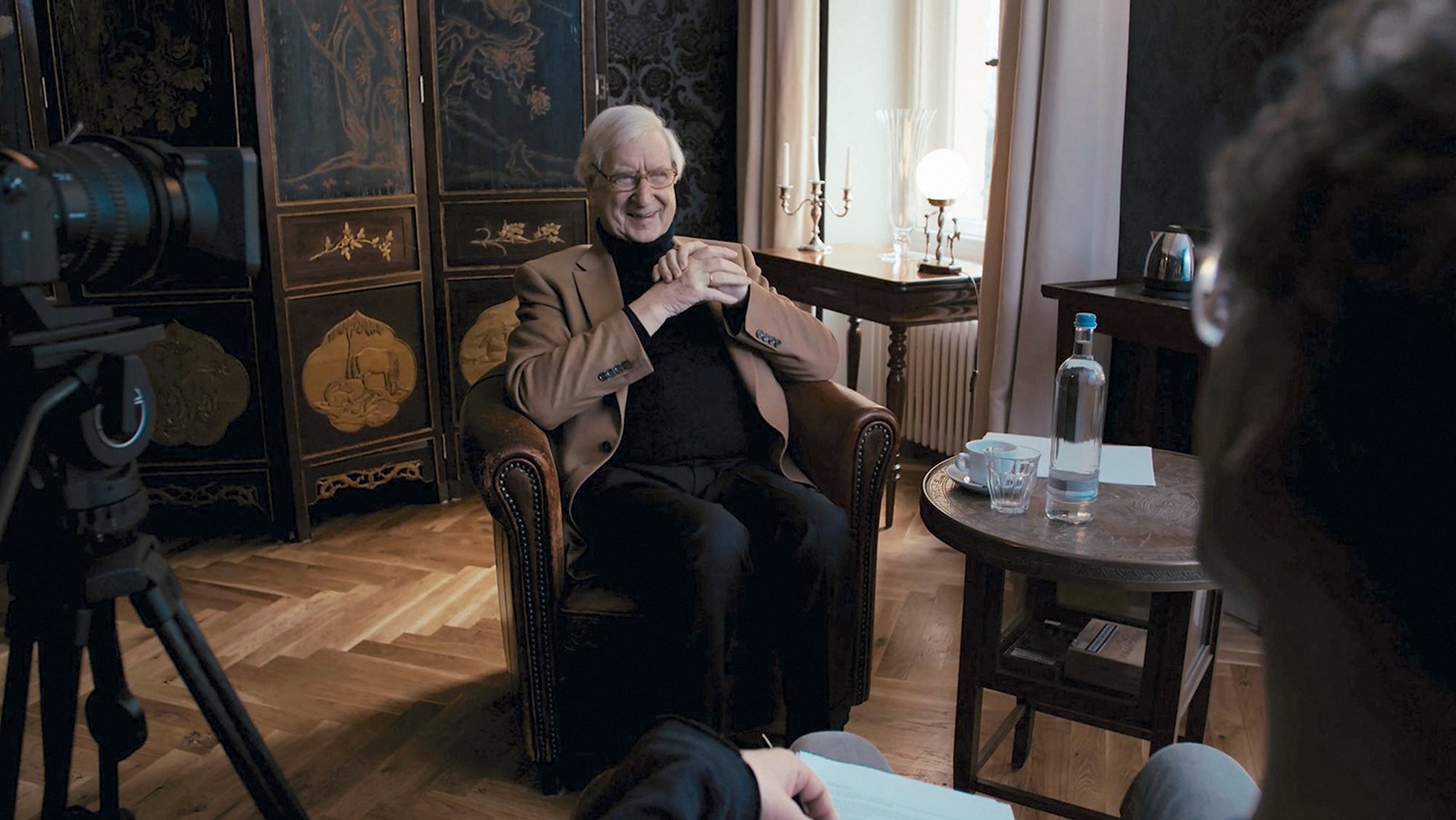
The anti-restitution lawyer Ludwig von Pufendorf, who was involved in a dispute over a proposed exhibition on Max Stern in Düsseldorf, is interviewed in The Spoils Courtesy Cave 7 Productions
Plunderer: The Life and Times of a Nazi Art Thief is produced by John Friedman and directed by Hugo Macgregor, who has made several films for the BBC. It is based on the historian Jonathan Petropoulos’s biography of Lohse, Göring’s Man in Paris: The Story of a Nazi Art Plunderer and his World (2024).
Lohse was never convicted after the war, though he did spend several years in prison. He lived in Munich after his release, becoming part of a discreet network of former Nazis who continued to deal in looted art. Meticulous in covering his tracks, Lohse worked with middlemen, Swiss banks and a shadowy Liechtenstein foundation to escape notice—and largely succeeded until his death in 2007 at the age of 95.
During the course of his research, Petropoulos became well acquainted with Lohse, whom he calls “a skilled liar, dissimulator, schemer”. In what he describes in the film as their game of “catch-me-if-you-can,” Petropoulos, too, would fall victim to Lohse’s lies and tricks.
Cache of looted art
On a road trip through some spectacular scenery, Petropoulos revisits Lohse’s haunts: his inconspicuous apartment block in Munich; Neuschwanstein Castle, where the Nazis stored art; the house where American Monuments Men interrogated him; the secretive Liechtenstein foundation Lohse ran; and the Zurich bank where, after his death, his cache of looted art was discovered in a vault.
The film gives intriguing insight into Lohse’s relationships with former enemies after the war. He befriended Theodore Rousseau, one of the American investigators who interrogated him and later became a curator at the Metropolitan Museum of Art. He also had contact with the secretive Wildenstein family of Jewish art dealers, victims of Nazi plunder. In New York, he dined with Rousseau and his wealthy mistress, Berthe David-Weill, whose vast family collection Lohse had helped to steal.
Towards the end of his life, “Lohse was becoming increasingly nervous because his past was closing in on him,” Petropoulos says. The German authorities were investigating his role in the deportation of a French art historian to Auschwitz. Meanwhile, the heir of the Jewish publisher Gottfried Bermann Fischer was pressuring him to restitute a painting by Camille Pissarro that Lohse denied was in his possession. That was a lie, of course; the painting was among the works discovered in Lohse’s Zurich bank vault in 2007.
The Spoils, directed by the Canadian filmmaker Jamie Kastner, traces efforts by Max Stern’s heirs to recover art seized by the Gestapo or sold under duress—in particular, their years of wrangling with the Düsseldorf authorities over a painting by Wilhelm von Schadow, The Artist’s Children (1830).
After escaping Nazi Germany, Stern settled in Montreal, Canada, and rebuilt his successful art business from scratch. He died in 1987 and bequeathed the bulk of his estate to three universities: Concordia and McGill in Montreal and the Hebrew University of Jerusalem. The Max Stern Art Restitution Project, set up by the universities, is seeking around 400 works; it has recovered 26 so far.
Interspersed with historical footage tracking the Nazis’ persecution and plunder, the film chronicles the outrage that followed the mayor of Düsseldorf’s last-minute, poorly explained decision in 2017 to cancel an exhibition at the city’s Stadtmuseum about Stern curated by two Canadian scholars. The mayor, Thomas Geisel, then announced that the city would put on its own show about Stern—without the Canadians and excluding the director of the Stadtmuseum, Susanne Anna.
Geisel and his top culture official squirm under Kastner’s questioning. The city’s lawyer, Ludwig von Pufendorf, on the other hand, seems to relish an opportunity to voice his anti-restitution views. “I have been insulted as an antisemite” he says. “But I don’t let that stop me from calling out abuse.” He opposed the first Stern exhibition, he says, because the Canadians planned “a particularly aggressive form of commemoration”.
Debate and division
A new municipal government restituted The Artist’s Children in 2021 and bought it back for the city’s art collection. Pufendorf no longer represents Düsseldorf in its art claims. But the film is a reminder of the potential Nazi-looted art retains to stir debate and division in Germany.
The Cologne auction house where Stern sold his inventory, Lempertz, is owned by the same family today. Henrik Hanstein, its current head, tells Kastner he believes his grandfather conducted the auction. He doubts that the Max Stern Art Restitution Project is acting in accordance with Stern’s wishes; Stern was happy with the compensation he received from the German government after the war, he says.
It is hard to square that view with the efforts Stern himself made to recover his art for decades after the war—or with his own words. In memoirs he recorded late in life, a valuable resource as survivors of Nazi persecution become increasingly scarce, Stern speaks with bitterness about the works stolen from him.
• Plunderer: The Life and Times of a Nazi Art Thief will be screened at the Marlene Myerson Jewish Community Center, New York, on 11 February, and at the Atlanta Jewish Film Festival on 25 February and 4 March. It will be broadcast in the US on PBS on 19 and 26 February and in Europe on Arte this spring
• The Spoils will be screened at US Jewish film festivals in Atlanta, Chicago, New Jersey and Boca Raton, and at the Doc Aviv festival in Tel Aviv, Israel. It will be also released in Canadian cinemas and will air on CBC in Canada in May


